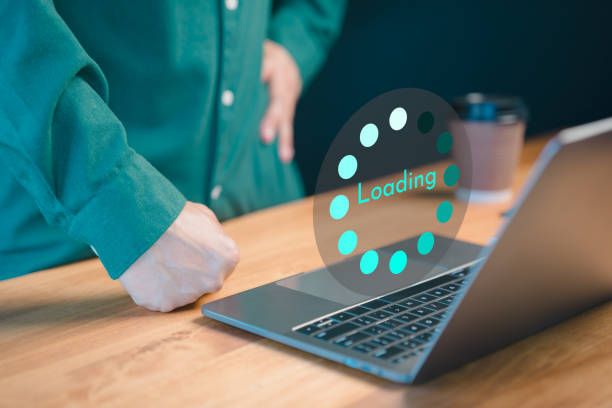Internet throttling is a term that is commonly associated with internet service providers (ISPs) that refers to the intentional reduction of internet connection speeds by ISPs. And, this practice is implemented for various reasons and can significantly impact users’ online experiences.
That is why understanding internet throttling and how to test it is important for users to ensure they receive the internet speeds they pay for and maintain optimal performance for their online activities.
Understanding Internet Throttling
Internet throttling involves ISPs intentionally limiting the bandwidth available to users, resulting in slower internet speeds. ISPs may throttle connections for several reasons, which include managing network traffic, alleviating congestion, and enforcing certain policies or restrictions on user internet usage. By controlling bandwidth, ISPs aim to ensure equitable distribution of resources among users and maintain network stability.
Reasons Behind Internet Throttling
There are several reasons why internet service providers (ISPs) engage in internet throttling. Look at them for a better understanding.
Bandwidth Management:
ISPs throttle internet connections to manage the distribution of bandwidth among users. By limiting the speed of certain connections, ISPs can prevent network congestion and make sure that all users receive a fair share of available bandwidth.
Network Congestion:
During the time of high internet usage, such as peak hours, network congestion can occur. And in that, internet throttling helps alleviate congestion by reducing the strain on the network infrastructure, ensuring smoother performance for all users.
ISP Policies:
Well, some ISPs implement throttling as part of their service policies. This might involve imposing data caps or restricting bandwidth for certain types of activities, such as peer-to-peer file sharing or video streaming, to manage network resources effectively.
Traffic Prioritization:
ISPs also prioritize certain types of internet traffic over others. For example, they may prioritize traffic related to essential services like VoIP (Voice over Internet Protocol) or online gaming to ensure a consistent quality of service for users engaged in these activities.
Compliance with Regulations:
In some cases, ISPs may throttle internet connections to obey regulatory requirements or legal obligations. This could involve adhering to government-mandated bandwidth caps or implementing measures to combat network abuse, such as spam or malware distribution.

Effects of Internet Throttling
Internet throttling, practiced by Internet service providers (ISPs), can have several significant effects on users’ online experiences:
Slower Internet Speeds:
The major effect of internet throttling is a distinguishable reduction in internet speeds. Users might experience slower download and upload speeds that lead to delays in loading webpages, buffering during video streaming, and longer wait times for file downloads.
Limited Access to Services:
Throttling also results in limited access to certain online services and websites. That is why users may face difficulties accessing streaming platforms, online gaming servers, or file-sharing networks due to the restricted bandwidth allocated to their connections.
Decreased Productivity:
Slower internet speeds hinder productivity, especially for users who rely on the internet for work or academic purposes. Moreover, tasks such as uploading files, conducting video conferences, and accessing cloud-based applications may become more time-consuming and frustrating.
Impaired Streaming Quality:
Furthermore, throttling can degrade the quality of streaming services that causes videos to buffer frequently and display in lower resolutions. Customers may experience interruptions and pixelation, diminishing the overall viewing experience on platforms like Netflix, YouTube, and Hulu.
Disrupted Online Gaming:
Gamers may encounter latency issues and increased lag when playing online multiplayer games due to throttled internet connections. Because higher latency and slower response times can lead to gameplay disruptions, decreased performance, and unfair advantages for other players with faster connections.
Inhibited VoIP and Video Calls:
Internet throttling can also affect the quality of voice over IP (VoIP) calls and video conferencing sessions. People experience dropped calls, audio distortions, and video freezing, making communication less reliable and efficient. Isn’t it frustrating?
Negative User Experience:
Overall, internet throttling come up with a negative user experience by holding back access to online resources, hindering productivity, and degrading the quality of internet-based services. Customers feel frustrated and dissatisfied with their internet service when throttling impacts their ability to perform tasks and enjoy online content seamlessly.

| Call 866-861-4084 for Internet Deals |
Tools and Methods for Testing Internet Throttling
There are several tools and methods available for testing internet throttling to determine if your internet service provider (ISP) is intentionally limiting your internet speeds:
Online Speed Tests:
Websites like Speedtest.net, Fast.com, and Ookla provide simple and user-friendly tools for measuring your internet connection’s speed. These tests typically measure download and upload speeds, as well as ping latency, and can help identify potential throttling by comparing your actual speeds with the speeds promised by your ISP.
Usage Monitoring Tools:
Network monitoring tools such as GlassWire, NetWorx, and Wireshark allow you to track your internet usage and monitor network activity in real-time. By analyzing data transfer rates and network performance metrics, you can detect fluctuations in connection speeds that may indicate throttling.
VPN Services:
Using a virtual private network (VPN) can sometimes help bypass internet throttling and improve connection speeds. VPNs encrypt your internet traffic and route it through secure servers, making it more difficult for ISPs to identify and throttle specific types of traffic. If you notice improved speeds when using a VPN, it may indicate that your ISP is throttling your connection.
Measurement Lab (M-Lab):
M-Lab is an open-source project that provides tools and resources for measuring internet performance and detecting potential throttling. The M-Lab platform offers various diagnostic tests, including speed tests, latency tests, and network congestion tests, to help users assess the quality of their internet connections.
Ping Tests and Traceroute:
Ping tests and traceroute commands can help diagnose network issues and identify potential throttling. It measures the round-trip time for data packets to travel between your device and a specific server, while traceroute commands trace the route that data packets take through the internet. Significant delays or irregularities in these tests may indicate throttling or network congestion.
Run Multiple Tests:
Furthermore, performing speed tests at different times of the day and on different days of the week can provide a more comprehensive understanding of internet performance. Other than that, throttling may be more prevalent during peak usage hours, so testing at various times can help detect patterns of throttling behavior.
Steps to Counter Internet Throttling
If you have a feeling that your internet connection is being throttled by your internet service provider (ISP), there are several steps you can take to counteract the throttling and improve your internet experience:
Contact Your ISP:
The first step is to reach out to your ISP and inquire about any potential throttling issues affecting your connection. Politely express your concerns and ask for clarification on their throttling policies and practices. Sometimes, ISPs may not be aware of specific issues affecting individual users and can assist in resolving them.

Use a VPN:
Using a virtual private network (VPN) can help you bypass internet throttling by encrypting your internet traffic and masking your online activities from your ISP. Also, By rerouting your connection through secure servers located in different regions, VPNs can help circumvent throttling restrictions and improve your internet speeds.
Monitor Your Connection:
Keep track of your internet connection’s performance over time using speed tests and network monitoring tools. By monitoring download and upload speeds, latency, and packet loss, you can identify patterns of throttling behavior and gather evidence to support your claims when contacting your ISP.
Upgrade Your Internet Plan:
Consider upgrading to a higher-tier internet plan with increased bandwidth allocation and faster speeds. Though this may involve additional costs, it can provide you with a more reliable and consistent internet connection, reducing the likelihood of throttling and improving your overall online experience.
Explore Alternative ISPs:
If you consistently experience internet throttling and unsatisfactory service from your current ISP, explore alternative internet service providers in your area. Research other ISPs that offer competitive pricing, reliable performance, and transparent policies regarding throttling and network management.
File a Complaint:
If you believe that your ISP is engaging in unfair or discriminatory throttling practices, you can file a complaint with relevant regulatory authorities or consumer protection agencies. Provide detailed information and evidence of your experiences with internet throttling, and advocate for policies that promote net neutrality and fair treatment of internet users.
Conclusion
In conclusion, internet throttling is a common practice employed by ISPs to manage network traffic and ensure equitable distribution of bandwidth. By understanding the reasons behind internet throttling and how to test it, users can take proactive steps to mitigate the effects and maintain optimal internet performance.
FAQs on Internet Throttling
How does internet throttling affect online gaming?
Internet throttling can significantly impact online gaming by introducing higher latency, increased packet loss, and slower connection speeds, leading to a poor gaming experience.
Can using a VPN bypass internet throttling?
Yes, using a VPN can potentially bypass internet throttling by encrypting internet traffic and making it more challenging for ISPs to identify and throttle specific activities.
Why do ISPs throttle internet connections?
ISPs throttle internet connections to manage network traffic effectively, alleviate congestion, and enforce policies related to bandwidth usage and data consumption.
Is internet throttling legal?
The legality of internet throttling varies by jurisdiction and may be subject to regulations governing net neutrality and consumer rights.
How can I test if my internet connection is being throttled?
Users can test for internet throttling by using online speed tests, monitoring their connection’s performance over time, and analyzing key metrics such as latency, packet loss, download speeds, and upload speeds.

Meet Jennifer Harper, a wordsmith extraordinaire who has been shaping the digital landscape with her creative prowess for the past two years. Not just a content writer; she is a storyteller who brings the content to life. Her passion for internet trends, memes, and the ever-evolving world of entertainment is evident in every piece she creates. Jennifer doesn’t just follow trends; she sets them.